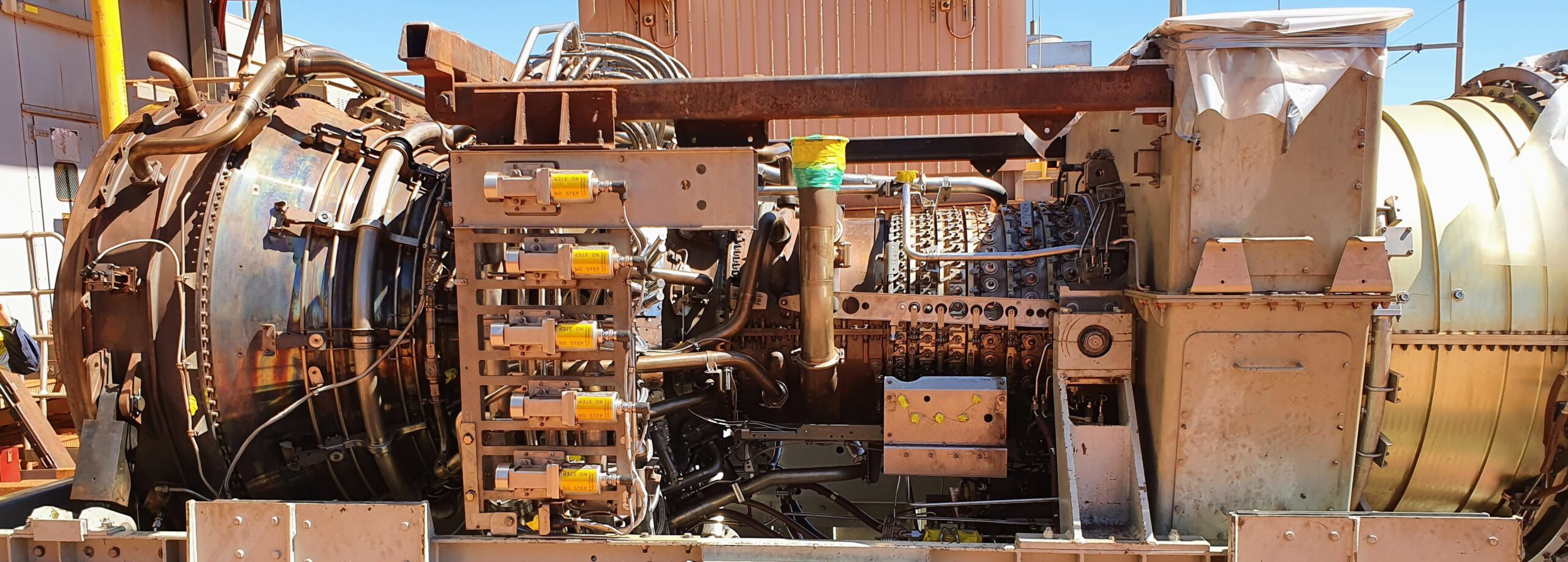Introduction
This article provides comprehensive guidance for the approval of industrial gas (Type-B) appliances in Western Australia. The aim is to assist owner/operators with understanding the regulatory requirements and processes involved in obtaining approval for installing and operation of Type-B gas appliances. Approval is a fine balance between customer, I-class gasfitter, gas inspector and gas network operator. Our team of specialists will provide guidance and technical support throughout the approval process.
An Industrial Type B Gas Appliance is defined as:
An appliance that has a maximum hourly input rate exceeding 10 megajoules (MJ), but is neither a Type A gas appliance nor a mobile engine.
Examples of Type B appliances include (but not limited to):
- Calciners
- Gas turbines
- Industrial ovens
- Heat-treatment furnaces
- Incinerators
- Waste flares
- Dry-out burners
- Process kilns
- Stationary gas engines
- Steam boilers.
Definitions
For the purpose of this article, the following definitions apply:
Approval for installation | Obtaining written approval from a Type B appliance inspector (after the review of the technical submission) so that the Type B appliance may be installed.
Certificate of Compliance (CoC) | Issued by a gas inspector to certify that the Type B appliance complies with Regulation 32 of the Gas Standards (Gasfitting and Consumer Gas Installations) Regulations 1999.
Class I Gasfitting work
- Gasfitting work on a consumer’s gas installation associated with a Type B appliance; or
- On piping that has an operating pressure of more than 200 kPa, not being gasfitting work referred to in paragraph (a) or classified as class E or P.
Commissioning | The testing of safety critical parameters in order to bring the appliance into operation.
Commissioning Gas | Gas made available by the gas supplier for the testing and commissioning of the Type B appliance for a defined period (which requires the endorsement of a Type B appliance inspector) prior to the Type B appliance being permanently connected to the gas supply.
The permission of the gas supplier is required for the provision of gas for commissioning purposes. The gas fitter who is carrying out the commissioning of the Type B appliance is responsible for applying to the gas supplier for commencement of gas. To satisfy the gas supplier’s requirement, the request needs to be endorsed by a Type B appliance inspector. The Type B appliance inspector must approve the period where the Type B appliance may remain on gas for testing and commissioning prior to the on-site inspection of the appliance by the Type B Inspector.
A Type B appliance inspector may approve:
- any period of no more than 28 days; or
- a longer period, of up to 90 days provided the inspector gives written notice to the Director.
- In special cases a further extension may be allowed with the approval of the Director.
Gas fitter | A gas fitter currently licensed by the Director.
Gasfitting work on Type B appliances must be carried out by licenced gas fitters or authorisation holders issued by Building and Energy. The applicable class of gasfitting permit is as set out in Schedule 5 of the Regulations.
Gas Inspector | A person delegated by the Director to approve Type B appliances. Gas Inspectors are obliged to abide by the Code of Practice for Inspectors (Gas).
Modification | An alteration that changes the safety integrity of the existing system or takes the appliance out of its original certification criteria.
Notice of Completion (NOC) | The notice required to be issued by the responsible Gas fitter under Regulation 28 of the Regulations, upon completion of Gasfitting Work. Within 48 hours of completion of gasfitting work (other than gasfitting work that is the nature of servicing), Regulations require the gas fitter to submit a NOC.
In the NOC, the gas fitter must certify that every part of the gas installation on which the gasfitting work was carried out, or that is affected by the work, complies with the requirements of the Regulations, is safe to use and is completed to a trade finish.
Notice of Intent (NOI) | The Notice of Intent (NOI) has been developed to advise the Gas Supplier of a likely significant future gas load that may impact on their supply infrastructure and enable them to monitor the progress of the Gasfitting Work being carried out.
Regulations | The Gas Standards (Gasfitting and Consumer Gas Installations) Regulations 1999.
Technical submission | Typical information and technical data submission as referred to in Appendix A of AS 3814.
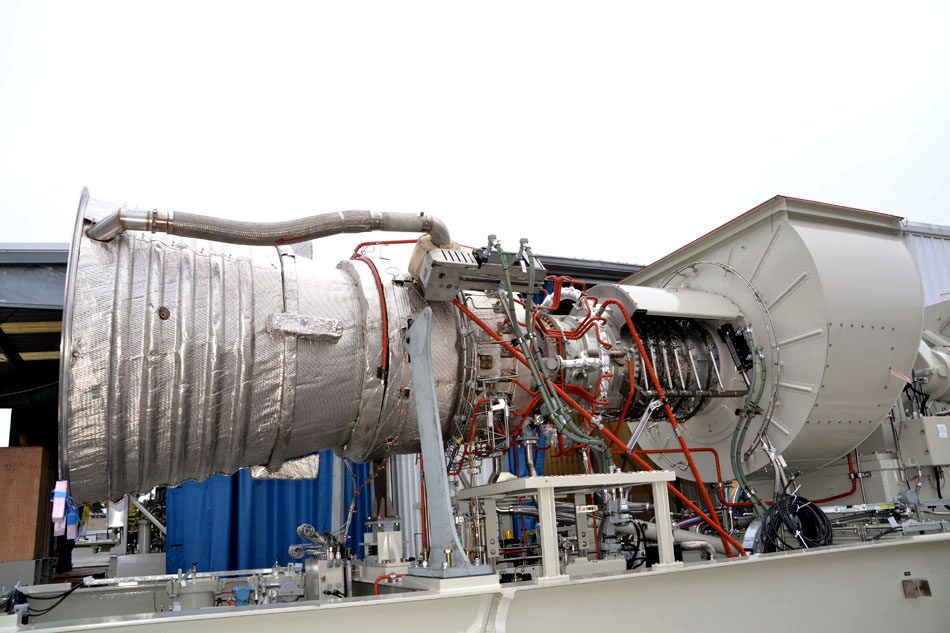
Solar Turbines | Titan 130 Gas Turbine
Technical Considerations
Type B gas appliances and their installations must comply with several requirements, including (but not limited to):
- The legislation relevant to the inspection, approval and certification of Type B appliances is the Gas Standards Act 1972 and the requirements set out in Schedule 6 of the Gas Standards (Gasfitting and Consumer Gas Installations) Regulations 1999
- AS/NZS 5601 Gas Installations
- AS3814 provides the minimum requirements for the design, construction, and safe operation of Type B appliances
- AS1375 outlines requirements and safety principles for industrial appliances involving the combustion of gas or liquid fuels.
Approval of Type B Appliances
The Regulations set out the requirements for approval of Type B appliances. A summary of the regulatory requirements that needs to be satisfied to allow Type B appliances to be approved for use is provided in Schedule 6, Clause 501 items (2) and (3) of the Regulations.
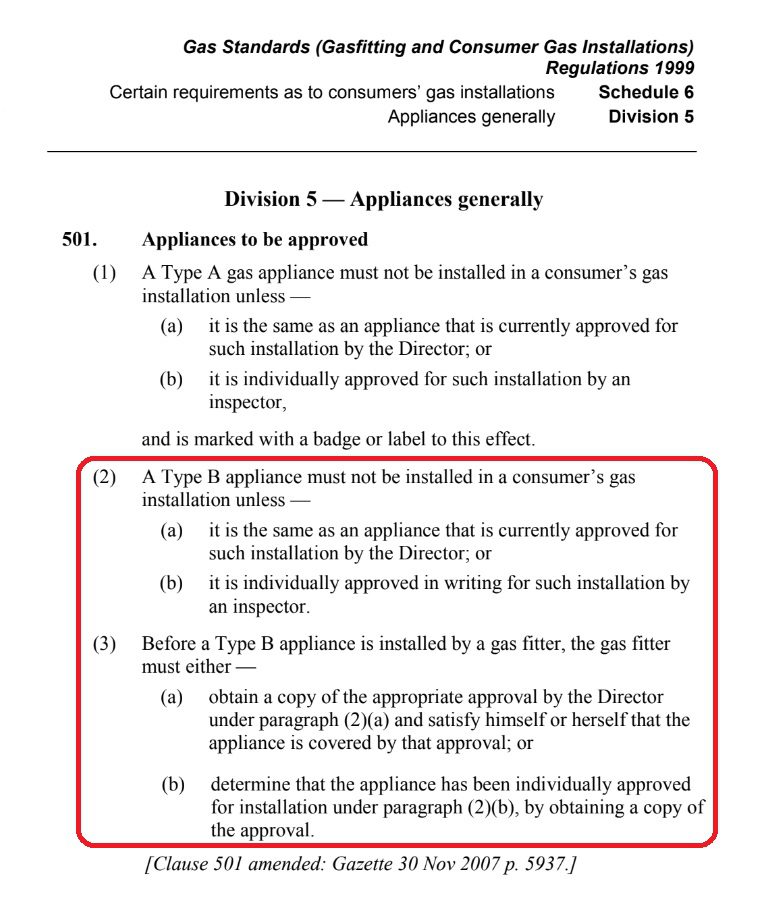
Gas Regulations | Schedule 6, Clause 501 items (2) and (3)
The process for the approval of Type B appliances is detailed in section 5. The prescribed Standards are listed in Schedule 7 of the Regulations. Alternative to inspection on-site (provision for inspection other than at place of installation) The inspection necessary under Regulation 22A(1) and the necessary certification and badging may, with the approval of the Director, be carried out at another place. For example, at the manufacturer’s premises as provided for in Regulation 22A. This approach is an option to avoid unnecessary on-site inspections where simple Type B appliances such as small kilns or furnaces are installed in remote areas.
Typical examples are:
- Type B appliances that are produced in quantity, to a specific design, are relatively small and only require connection to a gas supply (similar to Type A appliances) and/or
- Where specific arrangements are in place for the installing gas fitter to install and commission to a demonstrated process or procedure. If an appliance manufacturer, or owner, is seeking to obtain ‘type approval’ (that is, for more than one of the same appliance), approval must be sought from the Director.
The Approval Process
The approval process for Type B appliances typically involves five stages:
1. Obtaining ‘approval for installation’
The Type B appliance inspector reviews a technical submission and gives approval for the appliance’s installation.
Once satisfied that the proposed appliance will meet the technical requirements of the standard, the gas inspector gives approval for installation. As part of this process, the inspector receives and reviews a technical submission from the Class I gas fitter and/ or the applicant (owner/operator or appliance provider). For details of the contents of a technical submission, refer to AS3814.
2. Installation of the Type B appliance
An endorsed Class I gas fitter carries out the gasfitting work associated with the installation.
On completion of the installation of the appliance, the gas fitter will fix a compliance badge to the appliance.
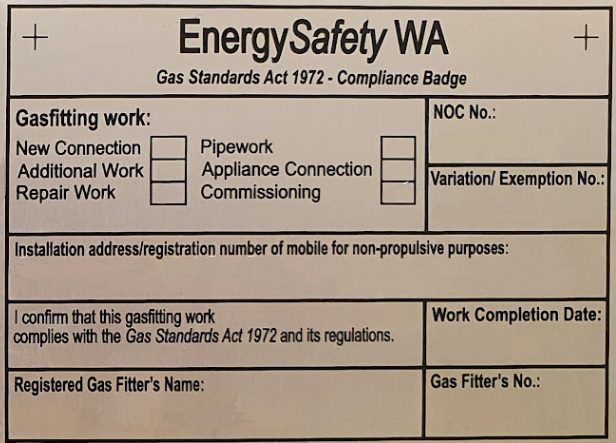
I Class Gas Fitter’s Compliance Badge for the installation of Type B Gas Appliance
3. Commissioning and compliance demonstration
The Class I gas fitter commissions the appliance and demonstrates its functional safety and compliance to the Type B appliance inspector.
4. Certification
CoCs are issued after the gas inspector has inspected the Type B appliance and has ascertained that it complies with the requirements referred to in Regulation 32 of the Regulations.
The Type B appliance inspector provides copies of the certificate to:
- Gas fitter who commissioned the appliance
- Owner/operator
- Gas supplier.
Where the place of inspection is other than the place of installation the inspector gives the three certificates to the manufacturer. The manufacturer is then required under the regulations to pass them on to the:
- Gas fitter who commissions the appliance
- Owner/operator
- Gas supplier.
As part of the certification process the Type B appliance inspector attaches an approved metal badge to the appliance.
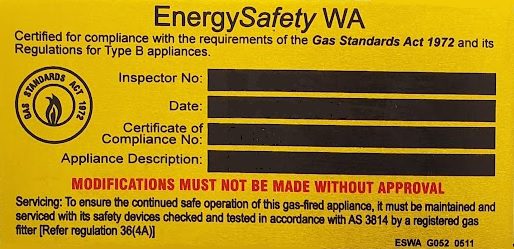
Gas Inspector’s Compliance Badge
5. Gas supplier approval for permanent connection
The gas supplier grants permission for permanent gas supply after ensuring compliance and safety.
To provide permanent gas supply, the gas supplier must have (as a minimum) a NOC(s) for the gas installation. These must include (where appropriate):
- Installed pipe work
- Appliance installation
- Appliance commissioning
- Inspected the overall gas installation and made an assessment for compliance/completeness of work
- Demonstrated that any Type B appliance(s) have been approved and badged accordingly by a Type B appliance inspector with an appropriate designation
- Provided confirmation to the Type B appliance owner/operator of commencement of permanent gas supply to the appliance.

GENEX ENERGY | Industrial Energy Specialists
Owner/Operator Guidelines
For owners/operators planning to design, construct, or import a Type-B appliance from overseas, it is crucial to consider the technical requirements outlined in relevant legislation and standards. Engaging a qualified gasfitter early in the project can help address specific requirements and avoid costly redesigns later.
If the intent is to import a gas appliance from overseas into WA site, then at the earliest stage, engineers, technicians and project managers involved in the design, construction and installation of an appliance and the associated consumer pipework are advised to consider the technical requirements in the following Standards and Legislation:
- Gas Standards Act 1972
- Gas Standards (Gasfitting and Consumer Gas Installations) Regulations 1999, particularly Schedule 7
- AS 3814 – Industrial and commercial gas-fired appliances
- AS 1375 – Industrial fuel fired appliances
- AS/NZS 5601.1 – Gas installations
Redesigning the appliance and the installation at a later stage in the project to comply with Australian and Western Australian requirements can be extremely costly both in money and time, especially for appliances imported to Australia which are often designed to international standards.
It is advised that an appropriately qualified and experienced gasfitter should be engaged at the earliest possible time, ideally before and during Hazard Operability (HAZOP) analysis. Gas fitters can advise appliance owners and operators of these technical requirements and other requirements which may be specific to the type and size of appliance in consideration.
Modifications
Existing Type-B appliances may undergo modifications, which require approval from the gas inspector. The certification process for modified appliances is similar to that of new appliances. Relocating a certified gas appliance may involve a waiver of re-certification and re-badging if the original certification remains unaffected.
Conclusion
Obtaining approval for Type-B gas appliances is a critical process to ensure the safety and compliance of installations in Western Australia. These guidelines, provide a comprehensive overview for owners and operators intending to install a gas appliance. The guide should help owner/operators, to understand the regulatory requirements and responsibilities involved in the approval, installation and commissioning processes.
Following this advice should help maintain the highest safety standards for people, plant, and property in gas installations across Western Australia.
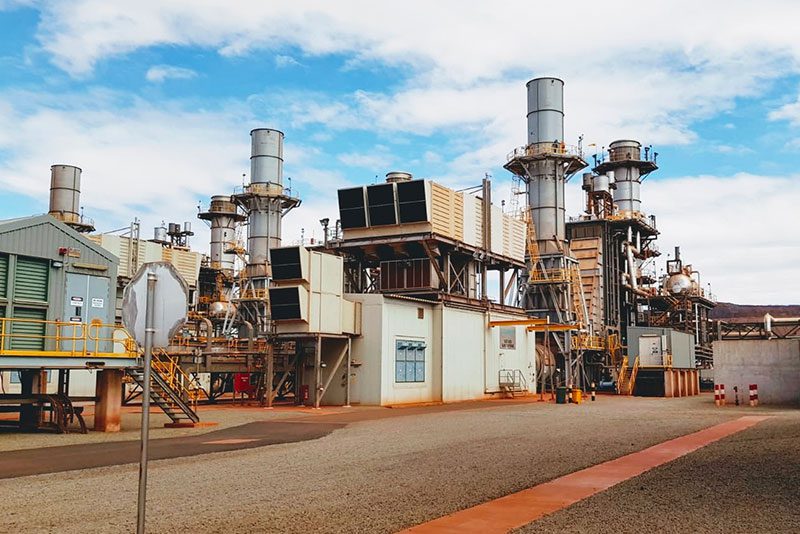
GENEX ENERGY | Industrial Energy Specialists
References
Guidelines for the approval of Type B industrial gas appliances in Western Australia.

